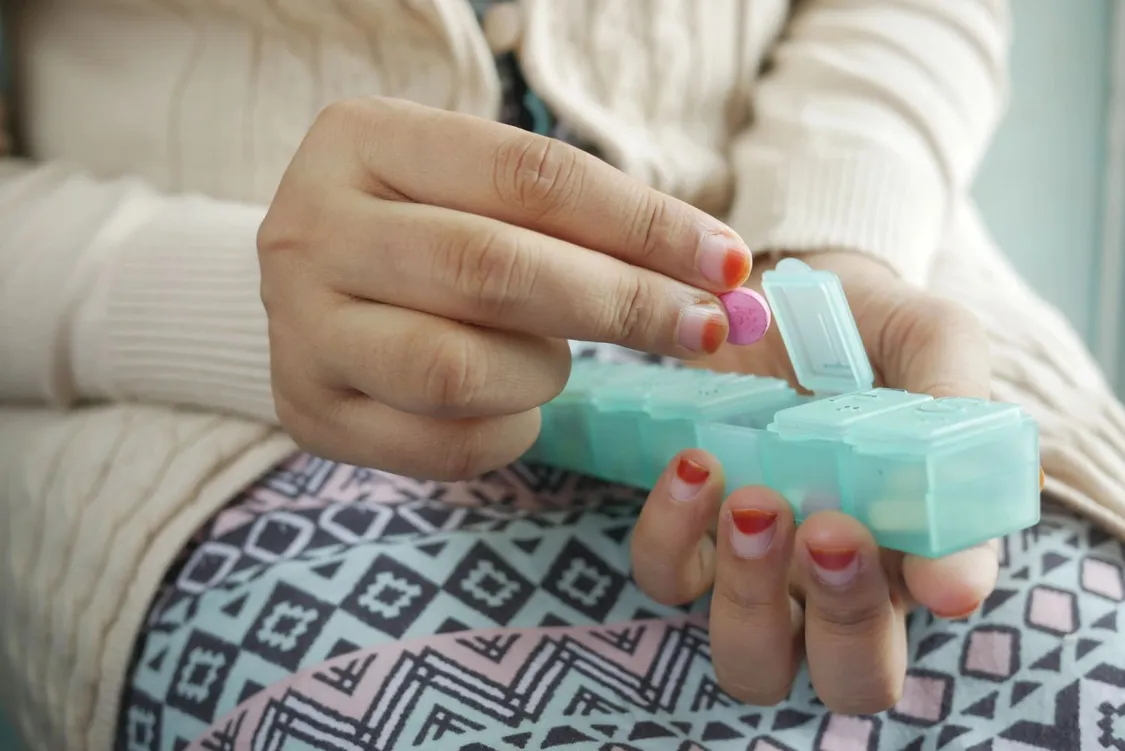03 Nov 2021
Dual Diagnosis is when an individual has a combination of both a mental health disorder and a substance abuse disorder. Whereas a comorbid disorder is a chronic physical or neurological condition which is also present at the time of an addiction. When a person is living with both of these illnesses then it may be more difficult to manage symptoms. It may also be difficult to find the right addiction treatment and therapy for the individual to cater and support their daily needs.
Co-occurring disorders are illnesses which often are triggered by each other. For example;
Someone suffering with depression or ADHD can also be suffering from a substance abuse. This could be because the individual is trying to deal with the symptoms of depression or ADHD through substance abuse, which may have led to dependency and addiction to that substance.
This is just one example of how co-occurring disorders can occur in someone’s life. However, this isn’t always the case. Every individual is unique and their circumstances are all different in the way the disorder is determined and how it develops. No two people have the same experience with co-occurring disorders although some may be able to relate to another person’s experience to a degree. Some individuals may have resorted to buying medication online due to lack of support and resources which poses significant risks.
Statistics on co-occurring disorders

According to the US research institute NIDA (National Institute on Drug Abuse) 7.7 million adults have co-occurring mental and substance use disorders.
There are also other statistics which highlight the barriers in which someone with a co-occurring disorder may find when looking to get treatment for their mental health. These are:
- 52.2% could not afford the cost
- 23.8% didn’t know where to go for treatment
- 23% could not handle problem without treatment
There are many effective treatments for both mental and substance use disorders. A comprehensive treatment approach will address both disorders at the same time.
Not everyone with co-occurring conditions gets the treatment they need:
- 52.5% of those with co-occurring conditions received neither mental health care not substance use treatment.
- 34.5% of those with co-occurring conditions received mental health care only.
- 09.1% of those with co-occurring conditions received both mental health care and substance use treatment.
- 3.9% of those with co-occurring conditions received substance use treatment only.
Common mental health issues and addiction
There are many different mental health issues which can occur alongside addiction. However, there are some which may be more prevalent than others. Some of the most common ones are listed below:
- Depression
- Anxiety
- Suicide
- Bipolar disorder
- Post-Traumatic Stress Disorder
- Borderline Personality disease
Statistics on Mental Health Rates in the UK
According to recent research (2023/4) which was taken out with a nationally representative sample of 2,000 UK adults reviewed by Dr Thom Phillips, these are the newest statistics on mental health in the UK:
- More than 1 in 7 UK adults say their mental health is currently either bad, or the worst it’s ever been.
- More women than men are currently struggling with poor mental health (18.5% of women vs 12.5% of men).
- Young people, aged 16-24 are the most affected by mental health struggles, with nearly a quarter (23.5%) describing their mental health as either bad or the worst it’s ever been.
- In 2023, NHS England spent £217.5 million on medication to treat depression and anxiety.
- Total NHS spend on medications used to treat anxiety and depression was highest at the start of the pandemic, though, with the total spend for 2020 being £346.4 million.
- More antidepressants and anti-anxiety medication are dispensed in the North East and North Cumbria than any other part of England.
- In the UK in 2024, the term ‘How to reduce stress’ is searched on Google once every 10 minutes, on average.
What comes first: Substance abuse or the mental health problem?
It can be difficult to identify if a person developed a mental health problem before or after using and/or abusing substances. There is no definite way to determine this unless the substance using started much later in that person’s life.
Although, it doesn’t matter which illness is developed first, they are both as important to get help for. Both diseases have their own characteristics which need to be addressed. The symptoms need to be cared for individually in order for you to be successful in recovery.
What causes co-occurring disorders?
There are no definite causes of co-occurring disorders. Each individual is different. Often someone struggling with a mental health illness will seek out unhealthy coping mechanisms such as drugs and alcohol. When a person starts to self-medicate this often will develop into an addiction.
On the other hand, an individual may have used drugs or alcohol for a significant amount of time and this behaviour has triggered psychological problems. There has been research taken out which has identified that long-term substance abuse and/or particular drugs used can produce symptoms of mental illness.
There are certain risk factors which may come into play when evaluating a person’s likelihood of developing a co-occurring disorder. For example,
- Genetic or family history of mental health disorders and/or addiction.
- A history of trauma or a traumatic life event
- Any mental illness
- Lack of treatment for mental illness
- Regular substance abuse
Similarly, to many other addictions there are genetic factors, environmental and developmental factors. We discuss this in more detail in our blog The real 'gateway drugs' in the UK.
Signs and symptoms of common co-occurring disorders

When looking at the signs and symptoms of common co-occurring disorders there are a few which might stand out. It is important to know that only a professional in the mental health department can diagnose a mental health or substance disorder. However, taking this into consideration if you are concerned about yourself or a loved one then you might want to have a look at some common signs and symptoms which are listed below:
- Retreating from friends and family
- Engaging in risky behaviour
- Struggling to manage daily tasks
- Extreme changes in behaviour
- Neglecting hygiene
- Using substances more often
- Relying on substances for daily tasks
If you are concerned about yourself or someone else then get in contact with our specialist addiction team who will be happy to help. They will also be able to guide you into the right treatment programme for you. As well as explaining the process for Dual Diagnosis.
Common signs and symptoms of depression
When looking at depression there are many different signs and symptoms. Each individual who is suffering with the illness may have different symptoms. There are typically three category types for symptoms:
Psychological – Relating to the symptoms on the brain
Physical – Relating to symptoms which can be seen on someone’s physical appearance
Social – Relating to symptoms and changes in social behaviour
The symptoms within each of these categories include:
Psychological:
- Low self-esteem
- Feeling tearful
- Continuous low mood or feeling sad
- Hopeless and helpless
- Guilt-ridden
- Irritable and intolerant of others
- Lack of interest in activities
- No motivation
- Feeling anxious or worried
- Having suicidal thoughts / thoughts of harming yourself
- Not getting any enjoyment out of life
Physical:
- Moving or speaking more slowly than usual
- Changes in appetite or weight
- Constipation
- Unexplained aches and pains
- Lack of energy
- Low sex drive
- Changes to menstrual cycle
- Difficulty in sleeping
Social:
- Neglecting your interests and hobbies
- Difficulties in you work, home or family life
- Avoiding contact with friends and taking part in social activities
There are severities of depression and most professional health practitioners will diagnose you by how serious it is:
- Mild depression – has some impact on day-to-day life
- Moderate depression – has significant impact on day-to-day life
- Severe depression – impossible to get through the day-to-day of life
Depression and substance abuse
Depression and substance abuse can come hand-in-hand. It is very common that some people who suffer with depression disorder will use substances to help to combat symptoms. For example, using drugs to help protect themselves from painful thoughts. Drinking alcohol in an unhealthy way can lead to suffering from depression symptoms such as sadness, hopelessness or lethargy.
Common signs and symptoms of anxiety
There are many different signs and symptoms of anxiety. Each individual may be experiencing some or all of these symptoms. There are again the three categories which different symptoms fall under:
Psychological:
- Sense of dread
- Restlessness
- Feeling on edge constantly
- Difficulty concentrating
- Irritability
Physical:
- Tiredness
- Dizziness
- Muscle aches and tension
- Shaking
- Dry mouth
- Excessive sweating
- Stomach ache
- Feeling sick
- Head ache
- Pins and needles
- Difficulty falling or staying asleep
Anxiety and addiction
Anxiety and addiction have many possible connections. These are different for each individual. However, for some people having anxiety disorder may trigger the person to self-medicate with alcohol or drugs.
If the person is self-medicating in order to lessen the symptoms of anxiety, they may become dependant on the substance. It is common for individuals to do this as when they have a drink or take a drug it may relax them or gives them a sense of calm.
In others cases the addiction may have caused or triggered the anxiety. For example, cocaine impacts parts of the brain that correspond to stress. By increasing the hormones in the brain this can cause the brain to think it needs the dependency which facilitates the anxiety disorder.
If you are concerned about yourself or a loved one then do not hesitate to ring our specialist staff. If you have any of the symptoms listed above get in contact with your doctor to find out your diagnosis. Once this has been identified you can begin to get help and treatment from both the doctor and others.
Common signs and symptoms of Post-Traumatic Stress Disorder
Anyone who might be dealing with Post-Traumatic Stress Disorder (PTSD) can have different symptoms to someone else who is also suffering from PTSD.
Some of the common signs and symptoms of PTSD are listed below, please bare in mind that not everyone will experience these; Some people may experience 1, all or none of the below:
- Reliving aspects of what happened – this could be having nightmares, intrusive thoughts or images, physical impacts such as sweating, pain, trembling and or nausea
- Alertness or feeling on edge – you might be easily upset or angry, panicking when reminded of trauma, extreme alertness, lack of sleep, irritability or aggressive, finding It hard to concentrate, being jumpy or easily startles
- Avoiding feelings or beliefs – you could be feeling like nowhere is safe, no one understands or can be trusted, blaming yourself for what happened or having overwhelming feelings of sadness, shame, guilt or anger
- Difficulty managing everyday life – this could include holding down a job, your sex drive, maintaining relationships, looking after yourself
- Flashbacks – you might relieve parts of a traumatic event which you may have experienced or think that it is happening now, there are often specific places, situations or people that can trigger flashbacks for you
PTSD and substance abuse
When looking at PTSD and substance abuse, they, like many other disorders often link together. Often people seeking treatment for PTSD are 14 times more likely to be diagnosed with a substance abuse disorder. PTSD is another disorder where individuals often seek out drugs or alcohol to deal with symptoms. Attempting to self-medicate and forget all the trauma or pain in an individual’s life, this leads to the addiction of substance abuse.
ADHD and substance abuse
ADHD, often accompanied by impulsivity, inattention, and hyperactivity, can significantly heighten the risk of developing addiction when it co-occurs with substance abuse disorders. The impulsive nature of ADHD can make it harder for individuals to resist the temptation of substance use, leading to a cycle of dependence. Substance abuse can exacerbate ADHD symptoms, further complicating the individual's ability to focus, regulate emotions, and maintain healthy relationships. Addressing both ADHD and addiction concurrently through tailored treatment approaches including therapy may be the best option for a sustainable recovery.
Treating ADHD and addiction concurrently requires a comprehensive and integrated approach that addresses both conditions simultaneously. Here are some key strategies:
Comprehensive Assessment:
- Conduct thorough evaluations to diagnose both ADHD/ neurodivergence and substance use disorders accurately. This helps in understanding the severity and interplay of both conditions.
Medication Management:
- ADHD Medications: Stimulant medications (e.g., methylphenidate, amphetamines) are commonly used to treat ADHD. However, non-stimulant options (e.g., atomoxetine, guanfacine) may be considered to reduce the risk of abuse.
- Medication for Addiction: Medications like naltrexone, buprenorphine, or methadone can be used to manage substance dependence. Medications for alcohol dependence, such as disulfiram or acamprosate, might also be considered.
Behavioural Therapies:
- Cognitive Behavioural Therapy (CBT): CBT helps individuals develop coping strategies, address negative thought patterns, and manage ADHD symptoms effectively.
- Contingency Management: This approach uses positive reinforcement to encourage sobriety and adherence to treatment.
- Motivational Interviewing (MI): MI helps increase motivation to change substance use behaviours and engage in treatment.
Integrated Treatment Programmes:
- Programmes specifically designed to treat co-occurring disorders provide a coordinated approach, ensuring that both ADHD and addiction are addressed simultaneously.
- Dual diagnosis treatment centres offer specialized care that includes medical, psychological, and social support.
Psychoeducation:
- Educating individuals and their families about ADHD and addiction helps in understanding the conditions, reducing stigma, and improving adherence to treatment plans.
Support Groups:
- Participation in support groups such as Alcoholics Anonymous (AA), Narcotics Anonymous (NA), or ADHD-specific groups provides peer support and shared experiences.
Lifestyle Modifications:
- Encouraging healthy lifestyle changes, such as regular exercise, a balanced diet, and adequate sleep, can improve overall well-being and help manage ADHD symptoms.
- Structured routines and organizational strategies can aid in managing daily tasks and reducing impulsive behaviours.
Family Therapy:
- Involving family members in therapy can improve communication, provide support, and address any familial issues contributing to substance use.
Monitoring and Follow-up:
- Regular monitoring of symptoms, medication effects, and substance use is crucial for adjusting treatment plans as needed.
- Ongoing follow-up appointments help in maintaining progress and preventing relapse.
Addressing Underlying Issues:
- Therapy should also focus on underlying issues such as trauma, depression, or anxiety, which might contribute to both ADHD/ neurodivergence and substance abuse.
Implementing a personalised and multi-faceted treatment approach enhances the likelihood of successful management of both ADHD and addiction, leading to better long-term outcomes.
Why co-occurring disorders are treated differently
The need to treat co-occurring disorders differently is because of the complexity of the person. It isn’t just focused on one illness there might be two or three different illnesses combined. Each disorder needs to be dealt with in order for the individual to get full recovery. If one disorder is treated but another isn’t there is more of a greater chance that, the person may relapse.
An example of this could be an eating disorder and cocaine addiction. If the individual seeks treatment for cocaine addiction they may be able to detox and start their journey to recovery. They may stop taking cocaine but the if they haven't sourced help for their eating disorder going into purging episodes may be triggering and they will start to use cocaine again to self-medicate. This could also be the case if the roles were reversed one may continue to trigger the other.
Dual diagnosis: Treatment & recovery
There are many different treatment options available for someone with a Dual Diagnosis. Often doctors will prescribe medication for mental health illnesses such as depression. They might prescribe things such as anti-depressants. Some treatment facilities support mental health practitioners prescribing different medications for mental health problems; however, some completely oppose it. Some argue that this is because the medication just numbs the symptoms rather than actually dealing with the issues which are perhaps creating the mental health disorder or creating an addiction.
It depends on what you think the right treatment is for you.
When looking at recovery, it is something which will have to be focused on for the rest of your life. There is no magic fix where you go through a programme and that’s it, you’re cured! It is a life-long process and each day you will have to continue certain daily tasks to keep you on track.
If you give the treatment and therapies your all then there is no reason why you won’t be able to achieve full recovery.
Does medication help with dual diagnosis?
Medication can help a person with Dual diagnosis, however, sometimes there needs to be more work and support available to help combat the addiction. Medication often blurs the recovery process and for someone with Dual Diagnosis the medication may only help one of the illnesses, usually mental health.
Some programmes which help to battle addiction actually help to combat some mental health problems. The 12-step programme for example helps to understand the way you are and gives you a structured plan of how to live day-to-day. In some cases when individuals have completed a programme like that for an addiction the effects of that have helped to lessen symptoms of mental health without the prescription drug from the doctors.
Dual diagnosis and behavioural addictions

Behavioural addictions can also be considered as a form of addiction which can form Dual Diagnosis. Behavioural addictions could include gambling, mobile phone/social media, eating, sex, pornography or shopping. These addictions can partner with mental health disorders. They can also partner with other behavioural addictions or substance addictions. All of the above are just as valid and are important to get treated.
The effects that some behavioural addictions have can be devastating. It is significant to address that although these behavioural addictions tend to not be illegal, it doesn’t mean that the addiction is a ‘good’ thing. There are still lots of negative repercussions from these addictions. For example, gambling can get so consuming that someone may lose their car or their house. It could completely bankrupt someone. This could impact their whole life and others around them.
Find the right treatment programme
It is crucial to your recovery journey to find the right treatment programme for you. This is especially important with co-occurring disorders as 2 types of illness need to be treated. Each disorder has its own symptoms which will need to be treated separately.
If you get in contact with our specialist team, they will be able to help and inform you on your options and where might be the best place for you via a free assessment. Some treatment programmes are specially designed for co-occurring disorders and/or specific to certain mental health disorders and addictions.
Try not to feel overwhelmed as many people suffer from co-occurring disorders. This means that there are a variety of specialists out there that can provide you with treatments and therapies tailored to you. The team have links to different treatment centres all over the world, which means wherever you are they will be able to find somewhere designed for you.
Most of our staff are in recovery themselves so there is nothing to be ashamed or worried about. They are the proof that you can achieve successful recovery. The first step comes down to you and if you are ready to start your journey.
Co-occurring disorder & dual diagnosis treatment centres near me
If you want to find out more about co-occurring disorders and dual diagnosis treatment and centres near you then please feel free to ring our friendly and professional teamwho will not hesitate to have a chat with you. They are available to answer any questions you might have and help you locate the best treatment centre for you or your loved one who might be wanting to take the next step to begin recovery.
